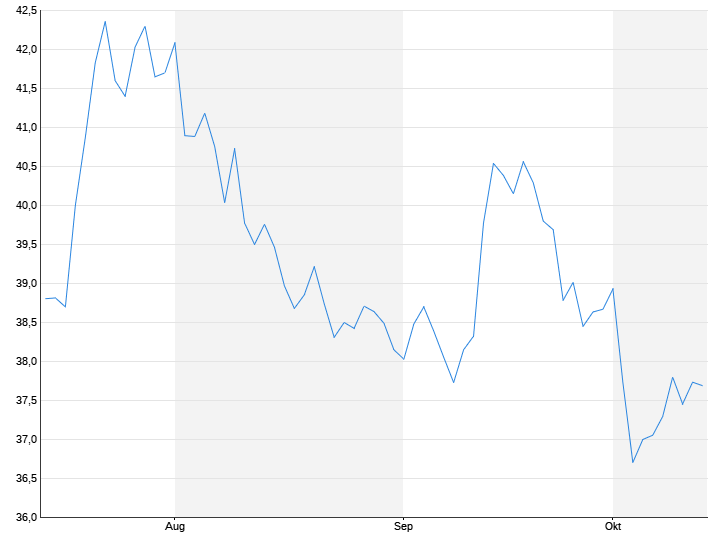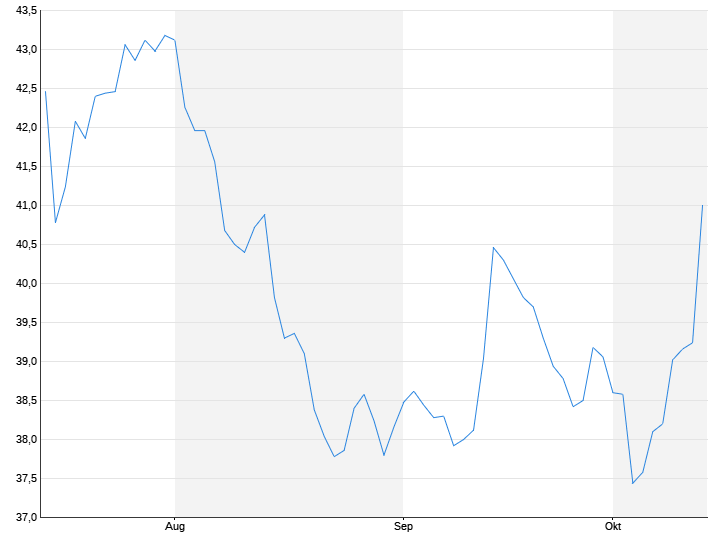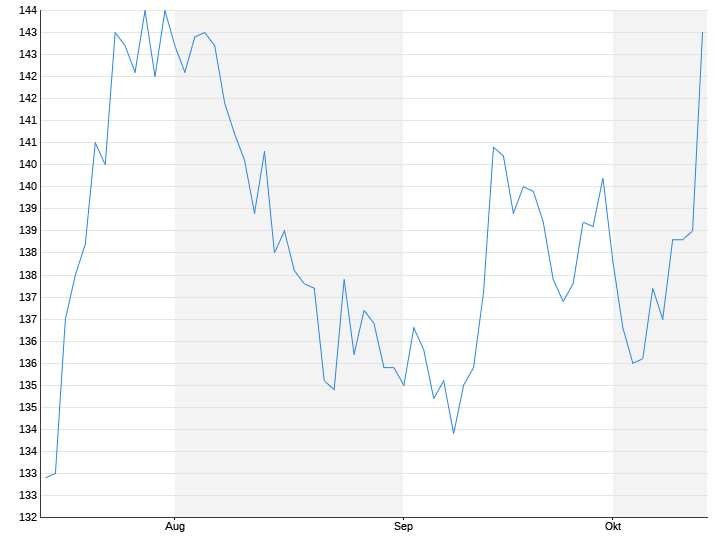Anxious looks at the world situation
Major US banks earn surprisingly well
October 13, 2023, 5:58 p.m
The higher interest rates on loans as a result of the Federal Reserve’s policy are filling the coffers of US banks. Industry leader JP Morgen also benefits from the state-backed takeover of a floundering competitor. The bank boss is now looking to the Middle East with concern.
Flourishing income in the lending business after the US Federal Reserve’s interest rate hikes helped US financial giants JP Morgan and Wells Fargo to jump in profits in the summer quarter. Thanks to increased interest income, the US industry leader JP Morgan increased its net profit in the third quarter by a good third to almost $13.2 billion, as the bank announced in New York. Competitor Wells Fargo, the number four US institution, even reported a jump in profits of more than 60 percent to $5.8 billion. Citigroup, the number three US bank, also increased its profits slightly after recent rather lean quarters. The surplus increased to $3.6 billion within a year. Investors reacted promptly – the shares rose in the premarket. The three institutions’ profit figures exceeded analysts’ estimates.
The takeover of the bank First Republic also contributed to the increase in profits at JP Morgan. At the end of May, the major bank took over the ailing institute as part of a state-backed rescue operation. Bank boss Jamie Dimon pointed out healthy consumer behavior among consumers. However, several geopolitical factors such as the war in Ukraine and the new conflict in Israel could keep inflation at an elevated level. “This could be the most dangerous time the world has seen in decades,” he warned.
The major bank increased its income to $39.9 billion in the quarter – an increase of 22 percent. Net interest income even rose by 30 percent to $22.9 billion. For the full year, JP Morgan now expects net income from the interest business of $89 billion – the previous forecast was $87 billion. Things went less well in the investment banking business, which was impacted by economic uncertainty. Revenues in the segment fell by six percent to $1.6 billion.

Wells Fargo increased its revenue to $20.9 billion. Net interest income increased by eight percent to $13.1 billion. CEO Charlie Scharf now expects an increase in net interest income of 16 percent for the year as a whole – previously he had targeted 14 percent. “While the economy has remained resilient, we are seeing the impact of the slowing economy,” Scharf said. He cited declining credit balance sheets and worsening depreciation. The bank saw total deposits fall to $1.34 trillion. As interest rates rose, some customers shifted their money into money market funds in search of higher returns.

Competitor Citigroup increased revenues by nine percent to $20.1 billion within a year. Revenues in the institutional client area, which also includes the Wall Street business, increased by twelve percent. Significantly increased fees in the investment banking business contributed to this – a ray of hope for the financial group after several weak quarters. Bond trading revenue rose 14 percent to $3.6 billion, more than offsetting a 3 percent decline in equity trading revenue.
CEO Jane Fraser announced a comprehensive restructuring of the bank last month. “We have announced significant changes that align our organizational structure with our strategy and transform the way we run the bank,” she said. Once completed, Citigroup will be simpler, act faster and be able to serve its customers better. The new structure of the financial group was not yet reflected in the results of the summer quarter.
